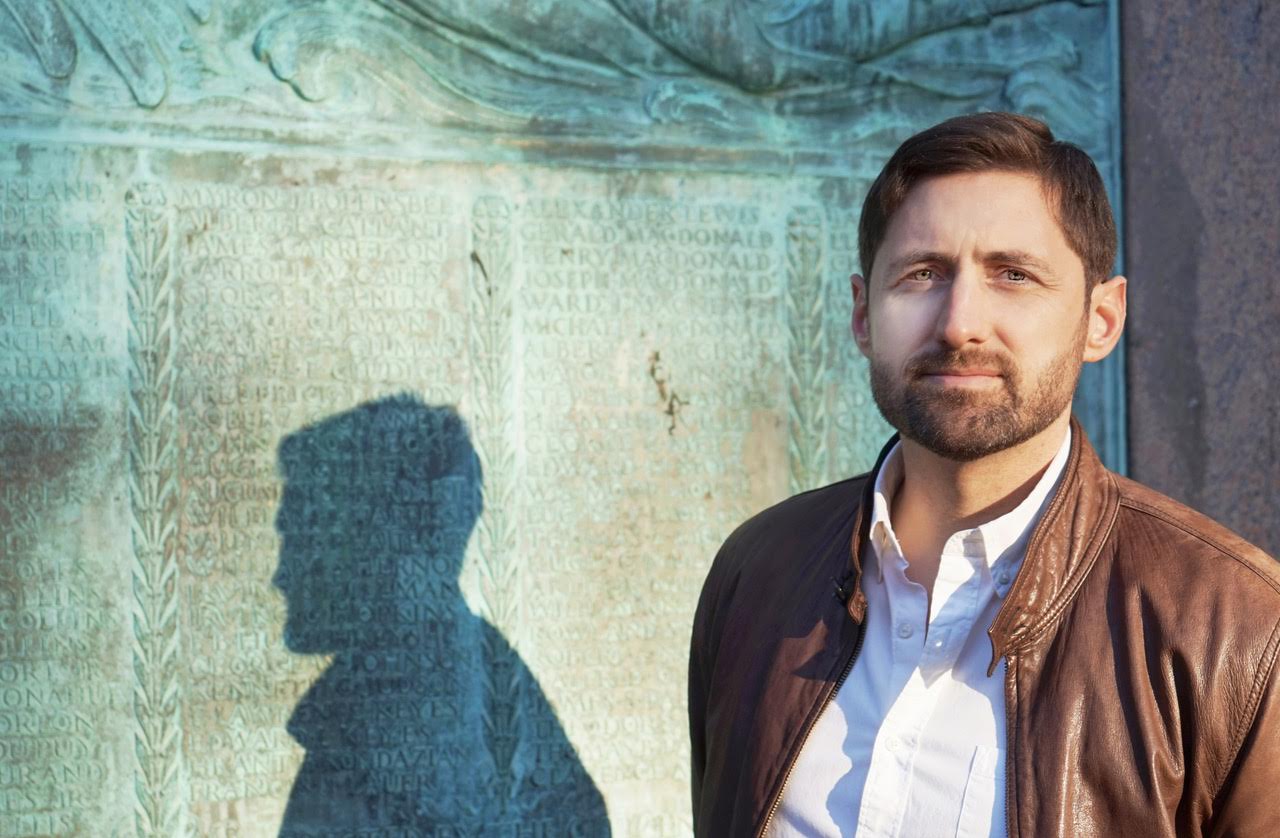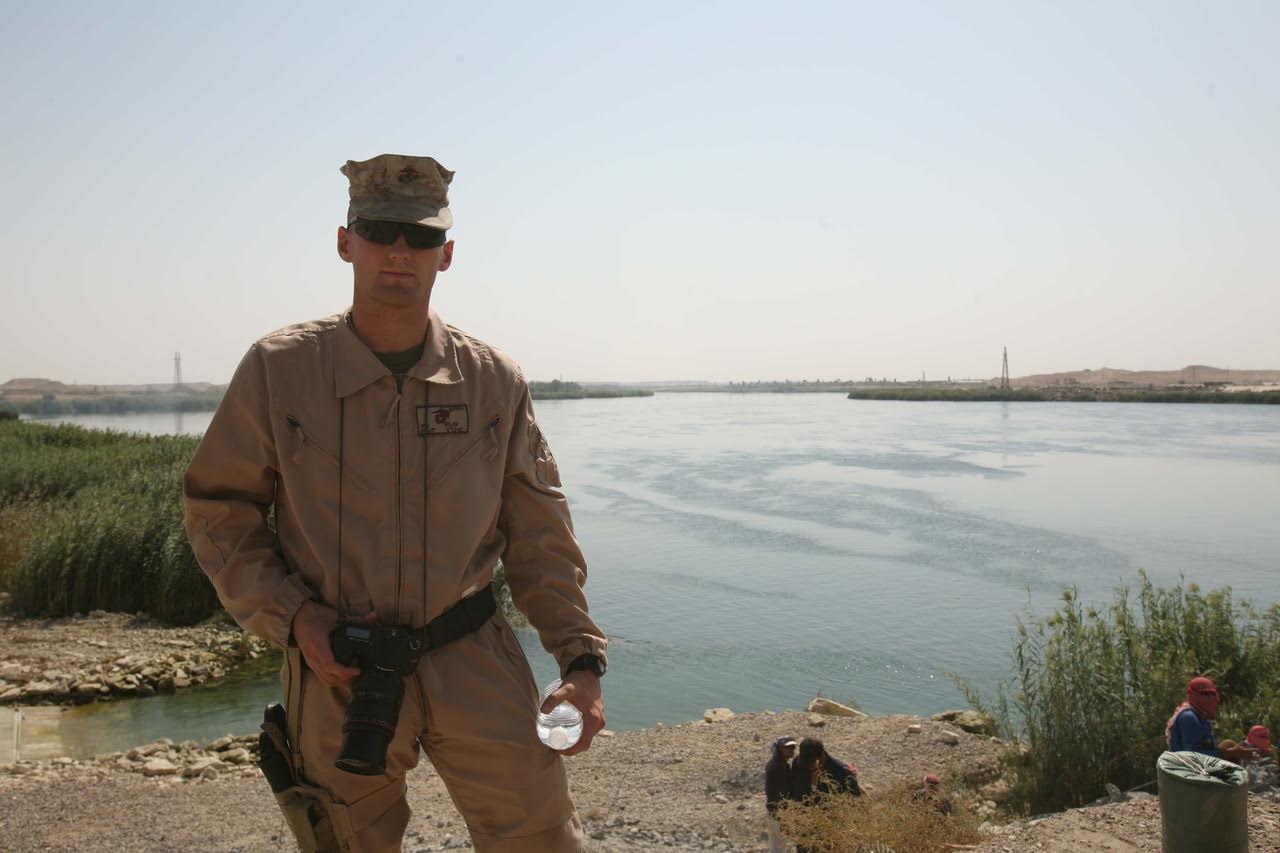
WINDSOR TERRACE — The Battle of Hastings in 1066 was a bloody chapter in the Norman Conquest of England — one in which veterans of the fight received orders from their Catholic bishops to atone for the killing of their enemies.
Phil Klay, a bestselling author living in Queens, explained that this “penitential ordinance” required Norman knights to do penance for one year for each man killed.
Killing, no matter how justified, was still a sin, according to the bishops.
“For atonement in the Medieval period,” Klay said, “it was understood if you killed or injured someone in war, you had to go to confession for that, even in a just war, because that leaves a mark on the soul.”
That mark comes in the form of guilt, and confession is a step toward confronting it. Atonement, therefore, can lead to the healing and reconciliation of the combat veteran, no matter if he wore chainmail in the Middle Ages or ballistic vests in the 21st Century.
Klay belongs to the latter group, having been a public affairs officer for the U.S. Marine Corps in Iraq. He left the service with the rank of captain. Now the author, his wife, and three young children belong to Our Lady Queen of Martyrs parish in Forest Hills, Queens.
“Missionaries,” Klay’s new novel, explores the confluence of modern warfare and culture. It arrived in bookstores last month. The Los Angeles Times called it a “beautiful, violent, and almost perfect new novel.”
Klay’s debut collection of short stories “Redeployment” won the 2014 National Book Award for Fiction and the John Leonard Prize for best debut work in any genre from the National Book Critics’ Circle.
Klay explained that even in a so-called “just war,” like the defeat of fascism in World War II, the combatants cannot shrug off memories of violence they’ve inflicted.
“Human beings don’t function that way,” he said. “The understanding that you need some sort of atonement to respond to the encounter of evil, and your part in it, is important.
“The work I’ve been doing over the past 10 years, trying to talk about war and the experience of it, is my way of trying to respond to that.
“I should be clear: I am very proud to have been a Marine. I would do it again. But it marked me and left me with a feeling of responsibility.”

Klay visited with The Tablet on Tuesday, Nov. 10, the 245th birthday of the United States Marine Corps, and the day before Veterans Day.
Asked why he chose the Corps, Klay flatly said, “Because it’s the best.”
“I had an older brother who joined the Corps,” he explained further, “and that certainly put that idea in my head.”
Klay said his mother is Catholic but his father is an atheist. That may sound like a conflict, but Klay said his dad’s profound sense of decency is quite compatible with the teachings of the Church.
“But he raised all these Catholic children,” Klay said, “and he has a very humanistic worldview. It was not so far apart from what a Catholic perspective would teach you about the right way to live in the world, to be in the world.”
The family lived in White Plains, Westchester County, and Klay attended Regis High School, a Jesuit institution in Manhattan’s Upper East Side. There, he became fascinated with the “Catholic intellectual tradition” and enjoyed the writings of Graham Greene and Flannery O’Connor.
He graduated from Regis in 2001 and Dartmouth College in 2005. The next stop was officer candidate school, U.S. Marine Corps. As a public affairs officer or PAO, he guided “embedded” war correspondents during the “troop surge” in Anbar Province, Iraq.
“I never had any particular desire to be in an armed conflict,” Klay said. “But it seemed the Corps was a place to serve my country.”
During his 13-month deployment, 2007-2008, Klay’s spirituality took a hiatus.
“While in Iraq I became less religious,” he recalled, “right up to the point of not believing in God.
“Things were going well. I felt confident in myself and what I was doing. But when I came back I started to think more deeply about the ongoing suffering. The war continued and the progress that I had been assured did not last.
“So I started having deeper questions about the war, and my role in it — not just as an American, but a human being.”
The world is a messy place, wrought with human conflict that boils into differing notions of a just war and the guilt of having killed others — that mark on the soul — to achieve victory.
Consequently, Klay said, some vets suffer confusion, rage, even thoughts of betrayal, and isolation because they feel misunderstood in their pain.
“So,” Klay added, “when you try to confront issues that our existence throws up at us, you have to rely on different tools.
“And that’s how I came back to religion.”
Society can help, Klay said, first by taking steps to understand veterans of all generations.
Klay also recommended reading modern books on war, and not just his. He praised the works of Matt Gallagher, Elliot Ackerman, Teresa Fazio, Kayla Williams, and Brian van Reet.
But understanding a veteran’s pain is not hard, Klay said, considering most people, not just vets, face trauma of some kind or another.
Klay said he’ll stick with his evolving faith, which brings him joy.
“It’s a space where I take time to recall what is most important, what still makes me the most human,” he said.
It helps him appreciate beautiful memories, like his 2-year-old child trying to teach an infant sibling how to pray.
“And that,” he said, “was just adorable.”
“I would say we’re free and flawed creatures,” Klay concluded, “and that I think the universe is an evolving, beautiful, creative, messy thing. And part of that mess involves a lot of pain, but also beauty.”

